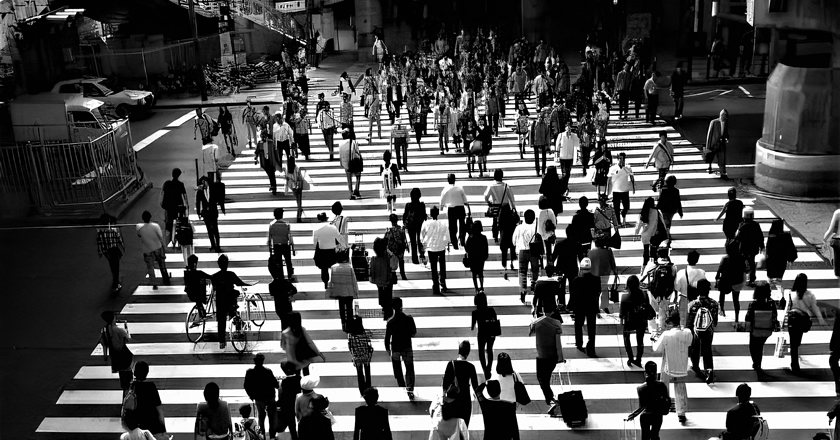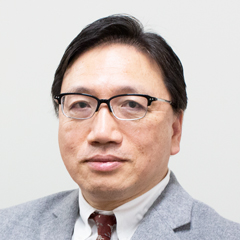Pitfalls of Civility
Civility is a concept embodied by respecting others and acting on one’s own. Accordingly, while people are being asked to refrain from going out, society directs a critical gaze toward those who are not avoiding the so-called three Cs. However, at the same time, we can feel humanity from such people. This is because no one can control all their earthly desires with ethics and reason; nor does anyone have the ability to achieve perfect rationality by collecting and analyzing information. It may be inevitable to have a normalcy bias in making our own decisions.
It would be therefore acceptable to use penalties as coercive means to avoid an increase in the number of infected people or overwhelming hospitals. Of course, the use of penalties has adverse effects. A lockdown with strict penalties will severely damage the economy. Which is the better of the two: long-term restrictions on going out or a short-term but thorough lockdown? I wish I could presume the answer to the question, but it’s not so easy. A reasonable amount of information and knowledge is needed to logically understand predictions of how many people will be infected by unseen viruses. Considering information asymmetry, external diseconomies, and overseas trends, the public authority’s active intervention in market mechanisms would be an extremely urgent and important measure in Japan. This would be especially true in certain regions. Uncivil (or disrespectful) tourists who dare not imagine the possibility of human infection are unwelcome intruders on remote islands in vulnerable medical environments. Such islands must want to set up their own barriers in airports, and some of them have actually banned tourists from coming.
However, the prospect of anger at and concern about incivility driving support for restrictive measures on people’s rights is frightening. The reason is it establishes a norm whereby rulers can intervene in the behavior of people. If it is continuously left to rulers to solve problems concerning incivility among the governed, the governed will begin to abandon self-directive thought themselves. This is because civility is transformed from moderate behavior toward others we impose on ourselves to that we force on others.
A principle or norm that citizens are the masters of citizens has originally been rooted in civility. However, if we begin to seek civility from others rather than ourselves, we may end up relying on the authority of rulers, which in turn may allow their authority to grow. If a group of rulers intends to turn the tables and become the master of general citizens instead of being in their service on the pretext of civility, the foundation of democracy may be overturned by thorough civility. If I dare put it in the strongest terms, in an emergency, norms rooted in democracy are even more necessary, and therefore threats pointing toward totalitarianism emerge. It seems that the noble autonomy of the word “civility” possesses an element of danger that compulsion against others is justified.
Autonomy or Obedience
We are now called upon to question ourselves regarding our own civility and to overcome this situation in our solidarity. The weight of the word “we” or “our” reminded me of a common ethnic joke. It is the so-called sinking ship joke: “How can you convince people of different nationalities to jump into the ocean from a sinking ship?” Japanese people are described here as citizens who jump in if told that other people have already jumped, and thus stereotypes their behavior. It is indeed a stereotypical but at the same time empirically plausible story. We tend first to criticize the inaction of a group of rulers (in particular, administrative officers) when something goes wrong. This can be said to be evidence of the strong dependence of Japanese on public authority. Accordingly, it is considered an implicit virtue to try to gauge the feelings of those around us, especially of seniors, or to read between the lines in individual decision-making, and consequently collectivistic decision-making is formed.
Be that as it may, because people in Japan are not as accustomed to rebelling against authority as those in the West, or obedient and relying on public authority, they seem to be able to overcome this situation through enlightenment rather than coercion. However, on the other hand, coercion with penalties seems to work better than enlightenment with compensation for Japanese since they can be considered submissive to a degree and vulnerable to peer pressure. At any rate, we are to leave the solution to a group of rulers. While we want and must be able to maintain our civil society without relying on the active intervention of rulers, we seem to easily accept active intervention due to our nationality.
In the southern United States, violent demonstrations had been once held against rulers, demanding the lifting of lockdowns. Americans, as it were, are willing to jump into the ocean when told in a whisper, “You can be heroes.” I wonder whether the purpose of the demonstrations is in fact to regain individual civility or to pursue their own selfish interests. Also, I wonder why such demonstrations are, I think, unlikely to be held in Japan. Are Japanese civil, or no more than collectivists? Even if they are civil, their civility seems to originate in ambivalent discipline: autonomy and obedience. That may be the source of the pitfalls of civility.
Civility of Rulers
Regardless of our country, we cannot predict future policy trends. However, unprecedented decision-making will be required in every country. Great resolution will also be required. To maintain the civility of society, a group of rulers may impose a number of constraints on the governed in the future. History will be the judge of the group’s decisions, but no matter what our ethnic stereotype is, we have to pay close attention to such decision-making processes going forward. Wise people in the world have appealed to the importance of strict monitoring of rulers by the governed and their social empowerment. As our dependence on rulers increases, the authority of the rulers naturally increases. How do we maintain a healthy balance of power between the governed and rulers? How do we prevent a group of rulers from ‘going crazy’? These are likely to become major challenges for public governance in the post-COVID-19 era. The civility of rulers and the trust from the governed would be called into question. To achieve them, it is necessary to manage public affairs in a manner that receives respect, even in a peacetime. Of course, every strategy has advantages and disadvantages. Rulers are required to make quick decisions. For these reasons, logical and careful explanations to the governed are also required. This means thorough disclosure of policymaking information and intermittent verification of political measures. By doing so, rulers must gain governed people’s confidence that speedy policymaking is not dangerous.
Unfortunately, despite the state of emergency in Japan, there were once some politicians who went bar-hopping in Ginza, which was beyond the understanding of the general public. Even though some of rulers have gone around disregarding the three Cs, none of the governed will accept such uncivil behavior of rulers. Although it is unclear whether such cases are the tip of the iceberg or the mere exceptions, there is no doubt that such behavior has fostered a sense of distrust of rulers. As I mentioned at the beginning, civility is our own matter. However, I strongly hope that individual rulers become sensitive to civility both socially and politically, and fully demonstrate it through their actions.
* The information contained herein is current as of May 2021.
* The contents of articles on Meiji.net are based on the personal ideas and opinions of the author and do not indicate the official opinion of Meiji University.
* I work to achieve SDGs related to the educational and research themes that I am currently engaged in.
Information noted in the articles and videos, such as positions and affiliations, are current at the time of production.


